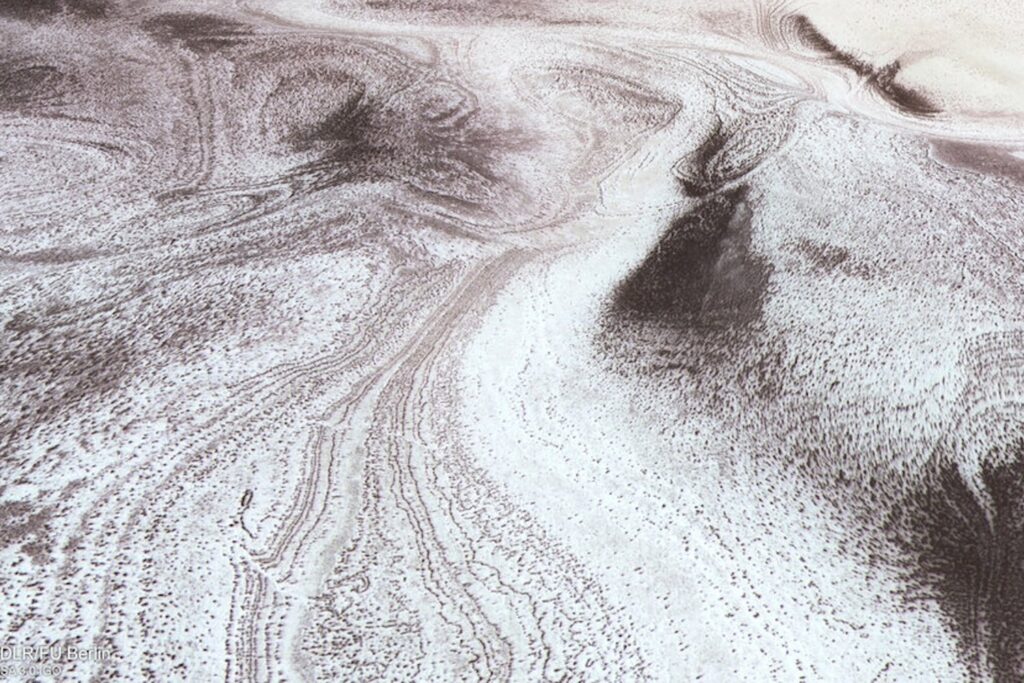It’s beginning to look a lot like Christmas—on Mars. The otherworldly landscape is, for the most part, a distinct red hue, but recent images reveal unusual frosty features that have turned the Red Planet’s south pole white.
The European Space Agency’s (ESA) Mars Express orbiter captured stunning views of a winter wonderland on Mars, but this isn’t your regular snowfall. Instead, Mars’ south pole is covered in layers of carbon dioxide ice and dust, according to ESA, creating the mesmerizing scene across the planet’s southerly region of Australe Scopuli.
The winter season on Mars sees temperatures drop as low as -190 degrees Fahrenheit (-123 degrees Celsius). As cold as it is, Mars doesn’t get more than a few feet of snow. Unlike snow on Earth, Martian snow comes in two flavors: water ice and carbon dioxide, or dry ice. On the one hand, water ice turns to gas before it touches the surface, due to the planet’s thin atmosphere; dry ice, on the other hand, does reach the surface.
Although it looks like a winter wonderland, the images were taken in June, when it was almost summertime at Mars’ south pole. According to an ESA release, the warming rays of the Sun are causing the seasonal ice layers to begin their retreat, evident on the left side of the image where dark patches are swooping in.
As sunlight shines through the dry ice’s translucent upper layers, the ice at the bottom sublimates—turns to vapor directly from a solid state—and creates pockets of trapped gas. The pressure builds up until the layers of ice at the top start to crack, sending jets of gas bursting through the surface, carrying dark dust from below. After bursting its way through, the dust then falls back onto the surface in a fan-shaped pattern guided by the wind.
In the above view of Australe Scopuli’s seasonal ice caps, layers of ice and dust overlap in a swirling dream across the Martian surface. The image was captured by the High Resolution Stereo Camera on Mars Express, allowing the topography of the landscape to be derived from the digital terrain model. The image offers a closer look at the fan-shaped pattern created by the bursts of dust, creating boundaries between the layered deposits.
ESA’s Mars Express launched in 2003, and has provided breathtaking images of the Martian landscape for more than 20 years. The spacecraft compiled the most complete map of the chemical composition of Mars’ atmosphere, observed the planet’s moons Phobos and Deimos in detail, and traced the history of water across Mars, according to ESA. The mission also carried a lander named Beagle 2, but it was lost on arrival and never conducted scientific operations on the Red (or, apparently, white) Planet.


